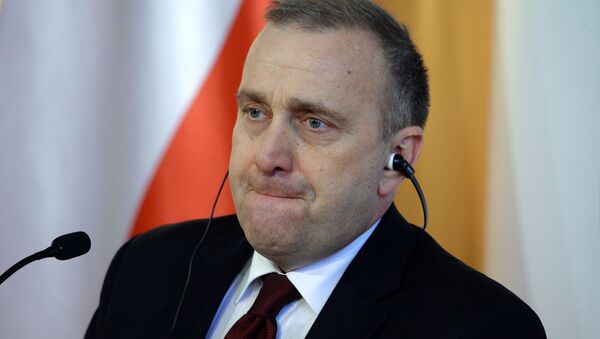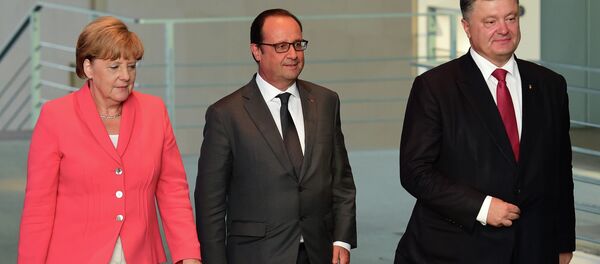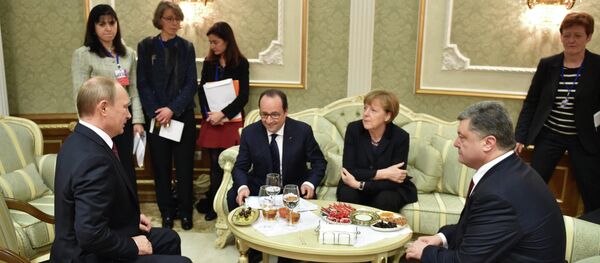Duda told German media that that he would like to discuss the idea of Poland joining the group during his upcoming visit to Berlin later this week. The president also declared that he would like to discuss the ways in which pressure against Moscow can be increased with German Chancellor Angela Merkel, repeating an earlier pledge to increase NATO's presence in Eastern Europe.
Schetyna told Polish media that President Duda's remarks were "unfortunate and awkward," adding that "the Normandy Format and the implementation of the Minsk agreements are the key —important and very delicate elements to ensuring peace and reconciliation in Europe. Therefore, we must support this format, these talks, the same way all the other countries of the European Union do." Noting that the peace process is not advancing as actively as Warsaw might like, the foreign minister noted that while "this formula is not perfect, there is no alternative to it at present."
Hinting at the emergence of a political conflict between the president and the foreign ministry, Schetyna noted that the government had only found out about the president's initiative in the press. "We cannot conduct our foreign policy through the media," Schetyna said.
In February 2015, the Normandy Four group worked out a ceasefire deal in Minsk, which was eventually signed by Kiev and pro-independence and autonomy supporters in Donbass. The truce included a set of measures aimed at ending the civil war in Ukraine's Donbass region.




